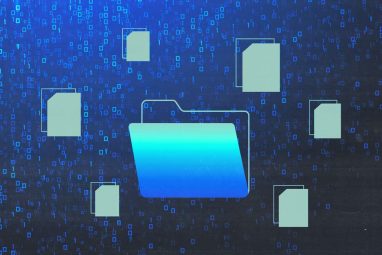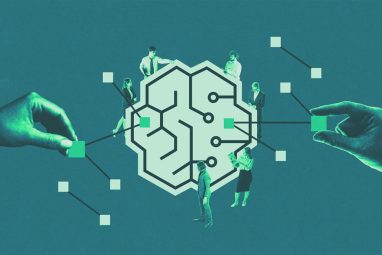Why LQMs, Not LLMs, Will Drive AI Sovereignty in the Middle East
The ability to discover and originate new science, IP, and solutions has become sovereignty's true frontier.
News
- UAE Companies Double Down on AI, but Gaps Persist: Report
- AI Robotics is a ‘Once-in-a-Generation’ Opportunity for Europe, Says Jensen Huang
- WEF and TII Announce Abu Dhabi Centre for Frontier R&D and Policy
- CrowdStrike Expands In-Country Clouds Across Saudi Arabia, India, and the UAE
- Musk Reboots Tesla’s Dojo Chip With Shift to Space-Based AI
- ServiceNow Names OpenAI as Preferred AI Partner for Enterprise Workflows

Image source: Krishna Prasad/MITSMR Middle East]
Over the past five years, governments across the Middle East have invested heavily in artificial intelligence infrastructure, establishing sovereign cloud frameworks, national data strategies, and hyperscale GPU clusters while founding dedicated AI institutes.
Riyadh, Abu Dhabi, and Doha have emerged as unlikely epicenters of next-gen compute, snapping up advanced chips and forging global partnerships at a record pace.
Yet beneath the surge of investment lies a quiet but pressing question: what is all this infrastructure for?
Owning data centers and importing models is different from owning the future. As generative AI reshapes global power structures, the ability to discover and originate new science, IP, and solutions has become sovereignty’s true frontier.
That’s where companies like SandboxAQ enter the picture. A deep tech spinout from Alphabet, SandboxAQ is building the foundations of the AI discovery stack: a set of technologies that go beyond language generation and into simulation, materials science, biopharma, defense systems, and quantum modeling. At its core lies a new class of large quantitative models (LQMs).
On the sidelines of Gitex Global 2025, MIT Sloan Management Review Middle East sat down with Jack Hidary, CEO of SandboxAQ, and Andrew McLaughlin, the company’s COO, to explore why the next wave of AI must be built not on scraped text, but on equations—and why the Middle East is uniquely positioned to lead this transformation from sovereign data to sovereign discovery.
Why LQMs Will Power Strategic Autonomy
LQMs are designed to simulate the real world, from atomic interactions to economic risk. While LLMs are optimized for language generation, LQMs are built for precision modeling across complex systems.
“LLMs are great at predicting the next word,” Hidary says. “But they’re not built to answer questions like: ‘What material should I use to make a rocket lighter?’ or ‘How do I store solar energy in a new battery chemistry?’ Those are quantitative problems. They require models that can reason with numbers, equations, and high-dimensional physical phenomena.”
He notes that industries such as finance, energy, materials, and aerospace are overwhelmingly numerical. In fact, SandboxAQ has seen major banks come to the same conclusion.
“One of the largest banks in the world told us they ran hundreds of LLM experiments. Only 10% were successful,” he says. “When your business is based on numbers, word prediction doesn’t get you very far.”
This is where LQMs thrive. By simulating molecular interactions, optimizing supply chains, or predicting material fatigue, LQMs are poised to become the intellectual engines of sovereign wealth funds, research institutions, and industrial R&D labs.
Finding Scientists Who Code
As the Middle East accelerates toward a discovery-driven economy, a new kind of talent becomes indispensable—not just AI engineers but computational scientists.
McLaughlin emphasizes the importance of combining subject matter expertise with computation. “Whether it’s biology, chemistry, or economics, you must know how to use computation to solve problems.”
According to him, the most impactful team members at SandboxAQ blend deep scientific knowledge with the ability to architect and run models: computational physicists, computational chemists, computational economists.
“It’s not just about knowing the domain,” he says. “It’s about being able to build workflows, loop back, learn, and iterate. Agent-based AI is helping us orchestrate those workflows—linking different modules, managing data between them, and negotiating across models that operate at different scales.”
From atomic simulations to cellular behavior, McLaughlin says the real breakthroughs come when models can“negotiate” across scales, creating multi-level representations of the world that drive faster, deeper discovery.
AI as the Engine of Sovereign IP and Economic Diversification
According to Hidary, to diversify its economy, AI offers the first realistic vehicle to achieve that ambition at scale. “For decades, we’ve talked about diversification. But now we can actually do it,” he says. “AI gives countries the ability to leapfrog—to go from being technology consumers to becoming originators of scientific IP.”
But to truly capture that value, the region must do more than train models or build clouds. It must invest in each layer of its digital stack, from hardware to software to locally built applications.
“If you think of the economy as a layered stack, it’s not enough to just build the infrastructure,” says McLaughlin. “You need applications developed here, solving problems for industries here, creating IP that can be sold to the world. Sovereignty isn’t just about chips. It’s about ownership at every layer, especially where you can capture the most value.”
To Chip or Not to Chip?
With recent imports of advanced GPUs like Nvidia’s Blackwell and the growing presence of hyperscaler partnerships, regional leaders have expressed concern about dependence on foreign hardware.
Is chip sovereignty essential to discovery sovereignty?
McLaughlin says the short-term ROI for the Middle East lies in the software, AI, and IP layers, not the silicon.
“Chips are important, but they’re capital-intensive and have long life cycles,” he says. “The moment you invest in one generation, you’re already behind the next. Meanwhile, if you focus on discovery and applications, you can differentiate globally much faster, and with higher margins.”
Still, he doesn’t dismiss the ambition of building chip capabilities.
“If the region succeeds in developing better chips with unique performance advantages, that’s a huge win. But it’s a long game. In the near term, focus on building sovereign intelligence like software, applications, and IP that feed into the global economy.”
Redefining Sovereignty for the AI Era
In a world where economic leadership increasingly depends on scientific innovation, sovereignty is being redefined.
“Sovereign data was the first phase,” Hidary says. “But the next phase is sovereign discovery, and that’s a much more powerful concept.”
By harnessing the capabilities of LQMs, building local talent pipelines, and creating new scientific IP, the Middle East has the opportunity to diversify its economy and become a global first mover in the industries that will define the next century.
“We are the first generation,” Hidary concludes, “that can simulate the world inside a computer. And that changes everything.”







